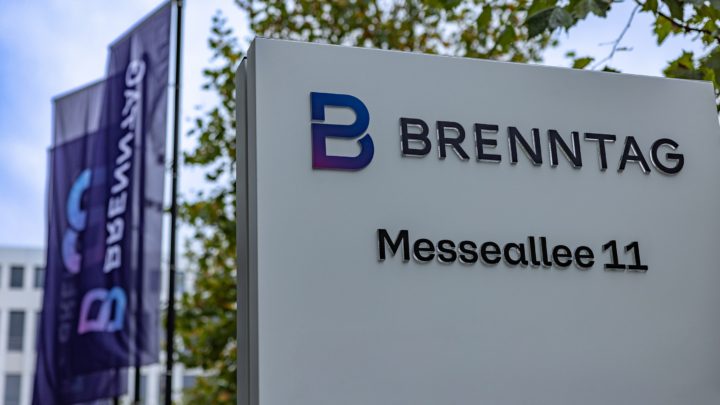
On 2 January, it was announced that Germany’s Brenntag was ending talks with American competitor Univar. Public comment from either company has been thin on the ground, but it seems that a pivotal role was played by activist investor PrimeStone Capital.
On 20 December PrimeStone, which has a 2 percent holding in Brenntag, sent a public letter to the supervisory board of directors and management of the chemicals distributor, in which it expressed “strong opposition to the acquisition of Univar”, and urged a “refocus on improving Brenntag itself”.
PrimeStone said the risks and uncertainties of an “empire-building” transaction were very high and vastly outweighed the potential benefits.
“Our interviews and analysis suggest that the dis-synergies could amount to 10-20 percent of combined gross profit and will likely wipe out all cost reductions if not more, as observed in the case of the Univar-Nexeo deal.”
It added that a merger between two of the major industry players would likely mean a lengthy and difficult antitrust process. “The complex execution will also be a costly distraction from the core business, which truly needs to be improved, and from other opportunities that could be seized,” it stated.
The letter stated that PrimeStone believes Brenntag “to be a high-quality company comprising two different businesses that can be significantly improved and expanded after years of modest performance”.
Supplier conflicts
PrimeStone claims that merging with Univar could result in significant revenue dis-synergies that would wipe out all cost synergies. “Univar and Brenntag are the two big behemoths of essentials distribution, only followed by sizeable, but much smaller, regional players,” the letter argued. “When Univar integrated Nexeo, significant volumes were lost to Brenntag and regional competitors. Similarly, we believe a substantial share of the volumes allocated by suppliers to distributors would be lost. Customers of both Univar and Brenntag will also diversify their supplier/distributor base to reduce their exposure to the combined company, especially after the Covid-induced disruptions that put supply chain risks on everyone’s mind”.
Supplier conflicts in specialties is also an area of concern for the investor. PrimeStone points to it being an attraction of the specialty chemicals distribution industry that suppliers provide distributors with territorial exclusivity. Specialty distributors typically acquire assets that help them enter a new vertical, a new territory or provide them with new and not conflicting suppliers.
“Large combinations are very rare in this segment and there is a good reason for that: any such combination would involve significant overlap in verticals and territories, and hence conflicting supplier agreements,” PrimeStone believes.
The investment outfit conducted its own analysis of the potential gross cost savings from the merger, concluding that these could amount to €500-700 million, before any antitrust-related forced disposal.
However, “if the combined gross profit declined by 10 percent (due to dis-synergies and supplier conflicts), the business would lose around €680 million of gross profit, totally wiping out the cost savings,” the letter argued.
“Should it lose 20 percent of its business, this transaction would have a vastly negative impact on profits. This is also without taking into account potential disruptions to service levels brought about by site consolidations, and salesforce integration.”
“With such a low margin for error (and) customers and suppliers all pointing to a high risk of significant volume losses, PrimeStone thinks Brenntag management “cannot have a high degree of confidence” that it will achieve a worthwhile profit improvement. “This is not a risk worth taking, especially for a transaction of this magnitude,” the letter stated.
Separation of Brenntag Specialties (BSP) and Essentials (BES)
Among alternative proposals put forward by the investor is a strategy to restore “an efficient balance sheet and capitalise on Brenntag’s depressed valuation”. This would include a €2.5 billion share buy-back programme to return to a balance sheet with ~2x net debt to EBITDA by the end of 2023, capitalising on the sharp contrast between “investors’ scepticism and management’s confidence in the company’s performance in 2023 and beyond”.
This, PrimeStone argues, would improve earnings per share (EPS) by 25 percent with no execution risk.
The investor also wants Brenntag to announce the future separation of Brenntag Specialties (BSP) and Essentials (BES) into two distinct listed companies. “After years of underwhelming performance and the welcome initial cost reduction and extensive operational separation in the last two years, it is time to unleash the potential of Brenntag’s two businesses by pursuing a full separation of these two world leaders,” the letter stated.
In particular, Brenntag Specialties needs to be “released from the burden of being tied to the Essentials business, which has dragged it down for too long already”.
PrimeStone argues that BSP is currently at “a competitive disadvantage” to attract customers, suppliers and M&A targets.
Such a split will provide greater focus and accountability as well as a better strategic, operational and financial performance of each individual business, the letter went on. It would also offer investors the option to invest in only one of the two businesses and should lead to a significant rerating over time.
Carbon footprint
Meanwhile, Brenntag has started to provide comprehensive product carbon footprint data (PCF) to customers.
The service is part of Brenntag’s sustainability strategy to promote and enhance transparency about greenhouse gas (GHG) emissions to drive reductions across the supply chain.
CEO Christian Kohlpaintner said: “More and more of our almost 190,000 customers worldwide are taking stronger environmentally conscious purchasing decisions. As the global leader in sustainable distribution, Brenntag cares and takes on responsibility for all ESG aspects, actively fostering the required changes. As a new service we provide product carbon footprint data to boost transparency about GHG emissions in the value chain of our chemicals and ingredients distribution industry.”
Brenntag calculates the PCF data according to the different stages of the supply chain. The first part represents Brenntag’s upstream Scope 3 emissions, from the extraction of resources through the manufacturing of the product up to the plant gate of our suppliers. Brenntag co-operates in this with suppliers and with data providers like Carbon Minds.
The share of Brenntag’s own emissions (Scope 1 and 2), is subsequently added. Thus, reliable data are provided to customers in alignment with the recently published ‘Together for Sustainability (TfS) Product Carbon Footprint Guideline’. Therefore, Brenntag makes emission reduction opportunities transparent, not only in relation to the manufacturing of the products, but also in relation to logistics and transport.
